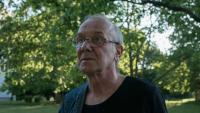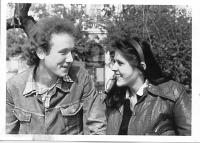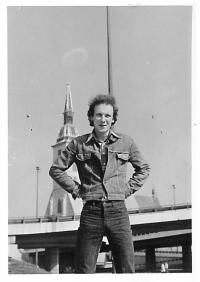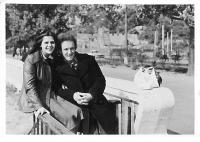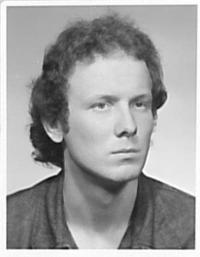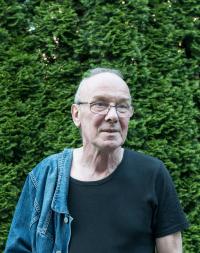Not a common man, but the regime should be ashamed
Ján Slovenčák was born on October 11, 1955 in Bratislava, where he grew up with his mother, brother and a sister. Invasion of the Warsaw Pact Troops into Czechoslovakia and experiences from the military service convinced Ján to emigrate from this country along with his girlfriend. In the end he had to set off alone, since his girlfriend didn´t get the necessary permission to travel. He promised to come back for her. After few months spent in Munich, Ján headed back to Czechoslovakia, however, on his return journey he was detained by German policemen because of yet invalid documents. In Czechoslovakia he was arrested and sentenced to one year imprisonment. He was forced to work with acids in the prison, what severely damaged his health. After the release he had difficulties with getting employed and he was under constant surveillance of the State Security. Despite of that he planned to flee across the borders again, but he didn´t succeed. Due to his health he had to be investigated out of prison, but he has never reached his goal to emigrate to the West anymore. After the fall of the communist regime he stayed living in Bratislava.


